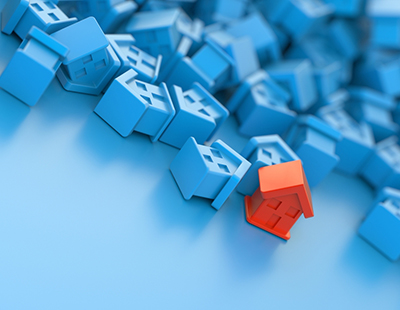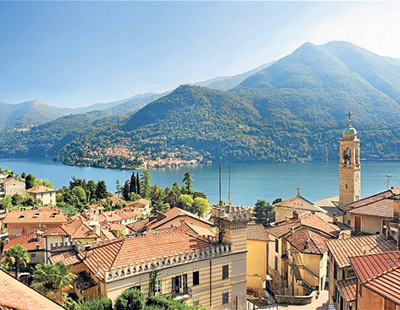Panama boasts a stable economy with steady growth—and lots of other investment opportunities (like agriculture) once you plant yourself in the real estate sector.
An apartment in Panama will cost you around £1,900 per sq metre in the city and approximately £1,300 per sq metre elsewhere, but that is offset by a meagre 2.08% income tax. You can expect to collect an average of £1,800 per month in rent, with a 5.75% yield.
Another country with a robust economy and growing tourism industry is Thailand. Condos, unlike other types of properties, can be purchased, and bring in around £1,750 per month with a yield of 5.13%. You can acquire one of these condos for approx £3,000 per sq metre in town and £1,500 per sq metre elsewhere. The income tax rate is 2.73%.
In South Africa, most Johannesburg studio apartments rent for less than £500 per month, but property investors are getting their highest returns (about 9.25%) from one-bedroom apartments, while two-bedroom apartments are in even greater demand (with a rental yield of 7.25%). The first £36,000 of any property’s purchase price is duty-free, while the rest is subject to a mere 3% tax. Suburban rental properties in Glen Marais, Linden, Florida and Randpark Ridge are in particularly high demand this year.
Indonesia boasts a bountiful population of citizens willing to rent. International investors are facing challenges buying properties, but are having better luck with leasehold agreements. New legislation (which calls for contributions from overseas investors) is coming soon.
Property is going for around £1,055 per sq metre in the city and £565 per sq metre on the outskirts. Monthly rental income averages £2,150 a month, subject to 20% income tax. Landlords can expect an 8.61% rental yield.
In Morocco, the standard of living is relatively high, while the cost of properties is relatively low for buyers and renters. Double taxation is not a problem there, and you can rely on their banks. Renters in Morocco pay an average of £750 per month, and their landlords yield 5.52%.
Properties can be found for £1,300 per sq metre in city centres and £700 per sq metre elsewhere. Rental income tax is 10.7%.
The population of the Philippines is increasingly foreign, meaning property investors are looking forward to a rise in property values. There is a huge demand for rental properties, with 20 million people on the lookout for a place to rent. And because the middle-class population has exploded in the Philippines, there are plenty of new, mid-range properties available.
The low 4.06% income tax balances the higher sq metre costs of properties (£1,500 in city limits and £860 outside the city), and an average monthly rental of £2,100 results in yields of over 6%.
Did you know that some countries charge no rental income tax? The United Arab Emirates is one of those countries. The average cost per sq metre to buy a property in Dubai is £2,200, while properties outside the city limits will cost around £1,600 per sq metre. Rent per month in the Emirates is around £2,600, and typical yields sit at over 5%.
If you’re looking for predictable and steady income from rental properties, without surprises, the island nation of Cyprus is the market for you.
Monthly rental income averages only £830; however, the rental income tax rate is 0%. That equates to a rental yield of 5.12%, with metropolitan properties costing £2,000 per sq metre.
Australia is looking at some serious growth in 2020 and beyond. Some property investment hotspots include the Sunshine Coast (Queensland), with most houses priced below £250,000, a rental vacancy rate of less than 3% and 24% market growth in 2019.
Also in Queensland, the Moreton Bay region is on an upward curve, with lots of vacant land for building, and most properties ranging from £150,000 to £250,000.
Hobart, in Tasmania, is bringing an impressive 15.2% rental yield, with a mean property price of £155,000.
Other booming real estate markets in Australia include those in Bendigo, Darebin and Latrobe Valley (Victoria); Mackay (Queensland); Marion and Port Adelaide Enfield (South Australia); and Joondalup and Stirling (Western Australia). Apartment rentals account for 47% of all residences in Australia, with rental housing outperforming apartments.
If you’d like to keep your property investments inside Europe, take a look at Germany. It has a relatively low cost of living, a stable financial landscape, and it’s a world economic leader.
Urban properties sell for around £4,700 per sq metre in Berlin, and £3,200 per sq metre in most other locations. That’s higher than others we’ve seen, but when you factor in £1,500 per month in rent and 2.71% rental income tax, you can expect a yield of 3.99%.
And finally, if you’re looking to invest in a country that will finance international investors, look to France. You will discover that the mortgage interest rates are low, and there will be plenty of opportunities to refinance in the future.
Properties are expensive to purchase, at £5,900 per sq metre in city centres and £3,600 per sq metre elsewhere; however, the average per-month rental rate is £3,800. You will pay 10% in rental income tax, leaving you with a yield of 2.79%.
This is by no means an exhaustive list of countries with property investment opportunities. There are many, many more that are emerging and evolving in an ever-changing global economy.
So, do your homework, find out which overseas real estate investments will work the hardest for you—to guard your capital, increase profits and augment your tax strategy.
And if you elect to manage properties overseas, remember that you can’t be everywhere at once. When you’re a remote landlord, communication and speed of service become even more crucial.
That’s where PropTech comes in. You can screen candidates, manage logistics, keep documents secure, coordinate service, collect rent…all from the other side of the world, in the comfort of your own home.
*Rochelle Trup is the co-founder of Arthur Online









.png)










Join the conversation
Jump to latest comment and add your reply
Glad to see that you think Panama is a great investment opportunity. While we can't be certain how the country will fare after COVID-19, I feel positive about the projection for a few reasons. First, while the economy is stable, real estate has actually been in decline in recent years. Some have blamed the presidency, but it could also be that the market had been over-inflated in recent decade and needed to correct. While other markets have been in a boom, that bubble map pop with the economic crisis looming. Secondly, after the crash of 2008, Panama's market really took off as investors were looking for a more stable environment. I have a hunch based on recent web activity that many people will be looking for "safer" places to live and invest. At this time, Panama has open Friendly Nations visa which allows permanent residency and a very attractive retiree program. Panama has consistently ranked a top retirement destination. For investors seeking an opportunity in Panama, I can be reached at opendoorspanama.com. Thank you Ms Trup for your article!
Please login to comment